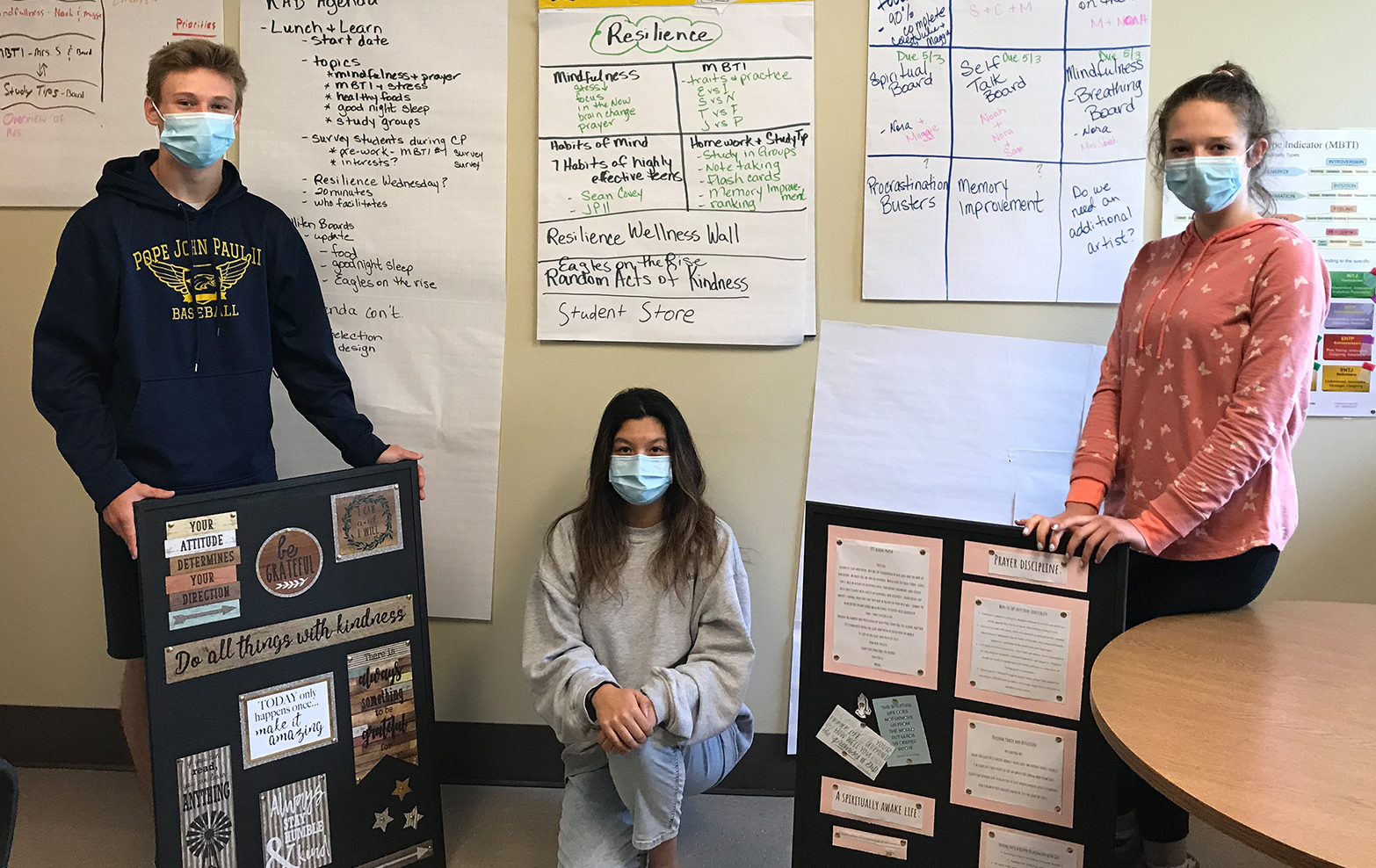At Pope John Paul II High School (JPII) in Lacey, “resilience” is the new watchword on campus.
As students returned for an unusual 2020-2021 school year dominated by the COVID-19 pandemic, JPII Principal Therese Allin recognized how the isolation and stress were negatively impacting students and staff.
“We saw how our students were struggling to manage the challenges of this pandemic year and we started looking for ways to address it,” Therese said. “After talking with our counselor, Julie Suek, about our students’ needs, we realized we needed to build a curriculum to address the social and emotional challenges they were facing. The high school applied for and was awarded a School Partnership Grant from the Fulcrum Foundation to fund this important project.”
Early in the school year, few students came to see Julie, unable to express what they were feeling or what they needed. Then, Julie introduced the Resilience Program and began experiencing a dramatic increase in student visits.
The Resilience Program teaches students important skills in four major areas: stress relief, study habits, personality assessment, and building healthy habits. At first, Julie’s plan was to visit different classrooms to teach the material, but she quickly realized how much more powerful the lessons would be if they came from the students themselves.
So, Julie put together an advisory board of five students and the program took off.
“What started out as these four units evolved into a paradigm shift in culture for the entire school,” Julie said. “It’s just amazing—the school has completely embraced emotional and social learning.”
“I love that Julie wanted to bring a panel of young people together for this project. At JPII, we listen to students and empower them to be an integral part of their own education,” said Ann Ashe, academic administrator. “That’s really who we are at JPII.”
The Resilience Program has led the charge to create bulletin boards on topics such as healthy eating, sleeping habits, and positive self-talk. The student advisory board led presentations about building good study skills. The students even worked to fill the JPII student store with healthy snack options to help their peers build better eating habits.
“We are far from done,” Julie said, even as the 2020-2021 school year drew to a close. There are already plans in the works to grow the Resilience Program into the next school year and beyond.
“I’m hoping students will develop long-term confidence and self-advocacy,” said Therese. “I want them to have tools to fall back on when they are struggling. It can be difficult to ask for help, so we are giving them the language and skills to deal with problems. We want to make mental health and wellness a part of everyday school conversation. That may be the hardest part, but it’s really where we want the program to go.”
